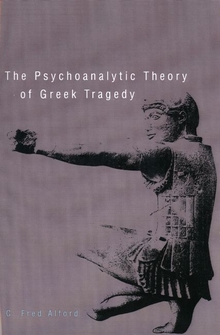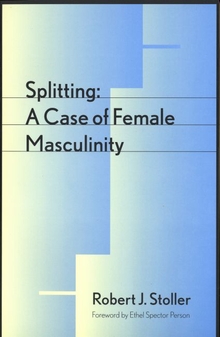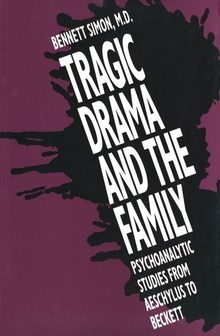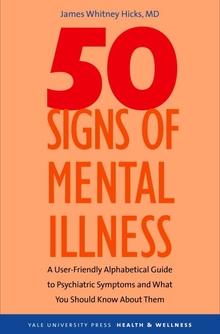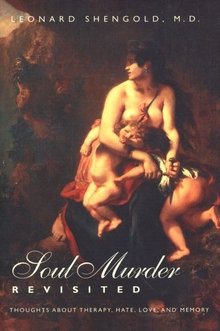The Psychoanalytic Theory of Greek Tragedy
WARNING
You are viewing an older version of the Yalebooks website. Please visit out new website with more updated information and a better user experience: https://www.yalebooks.com
C. Fred Alford
Alford draws on an eclectic mixture of psychoanalytic theories—in particular the work of Melanie Klein, Robert Jay Lifton, and Jacques Lacan—to help him illuminate the concerns of the Greek poets. He discusses not only well-known tragedies, such as Aeschylus' Oresteia trilogy, Sophocles' Theban plays, and Euripides' Medea and Bacchae, but also lesser-known works, such as Sophocles' Philoctetes and Euripides' so-called romantic comedies. Alford examines the fundamental concerns of the tragedies: how to live in a world in which justice and power often seem to have nothing to do with each other; how to confront death; how to deal with the fear that our aggression will overflow and violate all that we care about; how to make this inhumane world a more human place. Two assumptions of the tragic poets could, he argues, enrich psychoanalysis—that people are responsible without being free, and that pity is the most civilizing connection. The poets understood these things, Alford believes, because they never flinched in the face of the suffering and constraint that are at the center of human existence.
"A powerful interpretation of Greek tragedy at the level of the most fundamental human existential and ethical dilemmas. Alford uses psychoanalysis with a deft hand, and enlarges our understanding of both the premises of Greek tragedy and the premises of psychoanalysis. Building skillfully on the work of his predecessors, Alford has produced an impressive work that truly advances our understanding."—Bennett Simon, M.D., author of Tragic Drama and the Family: Psychoanalytic Studies from Aeschylus to Beckett
"A book that will be of intellectual profit, professional interest, and delight to mental health professionals of all disciplines as well as to non-clinical readers."—Ellen Handler Spitz, author of Art and Psyche
"An interesting book that is about more than just Greek tragedy, covering philosophy and politics as well as psychoanalysis. . . . Alford points out that . . . the plays have something to teach us and that psychoanalysis can be 'enlarged' by the tragedies. . . . A stimulating and enjoyable book for anybody interested in thinking about ancient Greek drama."—David Mann, British Journal of Psychotherapy
"This addition to psychological studies concerned with the Greek tragedies is thought-provoking, clearly written, and well-argued. . . . Even the classicists who are neither especially interested in the psychoanalytical implications, nor familiar with the psychological theories . . . will find this book valuable."—Leona Ascher, Classical World
"In a brilliant discussion of responsibility and freedom, we are pleased to follow a writer, so well read in political philosophy, on a subject which psychoanalysts have a profound interest."—Margaret Ann Fitzpatrick Hanly, International Journal of Psychoanalysis
"Few books are as humane and moral as this one, not to speak of its interpretive value. . . . Students of humanity at all levels who think tragedy is meaningful today should read this book."—David N. Wigtil, Religious Studies Review
Publication Date: October 11, 1992

